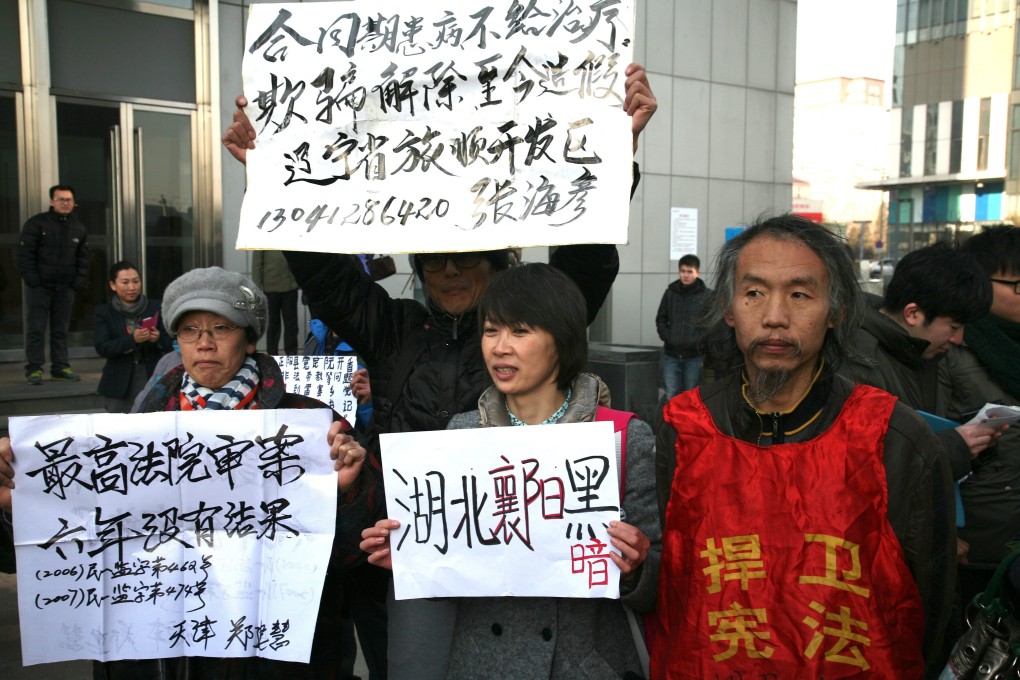Repression of rights activists ‘routine’ in China, says US State Department report

After lauding US ties with China this week, the State Department shed light on Thursday on an issue that got little public attention during the high-level talks in Washington: human rights.
Repression of activists in China was routine and tens of thousands of political prisoners remained incarcerated, according to the department’s annual review of human rights conditions around the world. The report, which covers 2014, said the Chinese government denied holding any political prisoners.
Assistant Secretary of State Tom Malinowski said that draft legislation on nongovernment organisations currently under consideration in China appears to call into question its government’s commitment to opening up to the world. The law could potentially affect businesses, cultural and educational exchange, and people working on rule of law and human rights.
He said the issue was raised at the security and economic talks that ended in Washington on Wednesday.
“We’re very concerned about the implications of it and about the rhetoric of fear of cultural infiltration that the Chinese government is using to justify this law domestically and what that says about China’s future development,” Malinowski told reporters.
Another Asian nation that figures prominently in the report is former pariah nation Myanmar, where the Obama administration restored diplomatic ties and eased sanctions after it shifted from decades of military rule.
But abuses against minority Muslim Rohingya in Rakhine State in the west of the country were a “severely troubling counterpoint” to the progress since 2011, the report said. The government released “one or two” political prisoners during the year, but continued to arrest new ones, with more than 80 estimated to be in detention at the end of 2014.